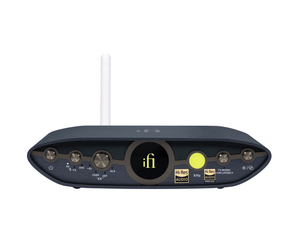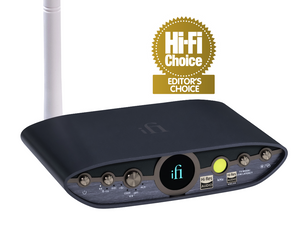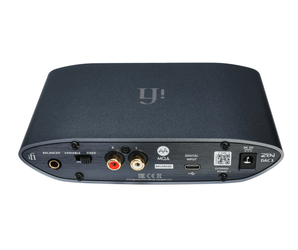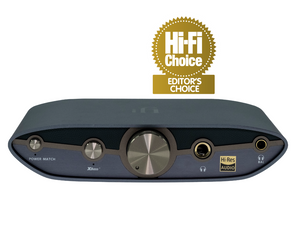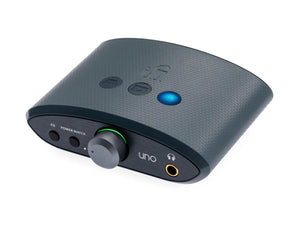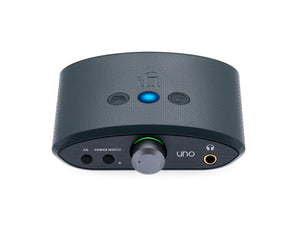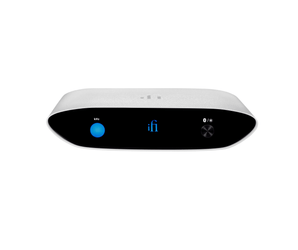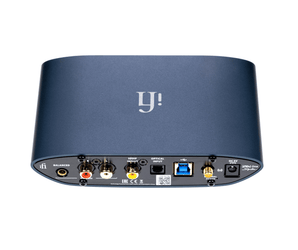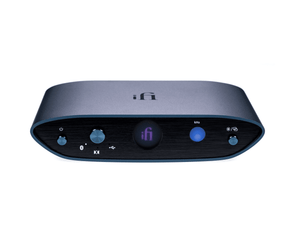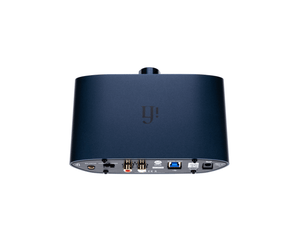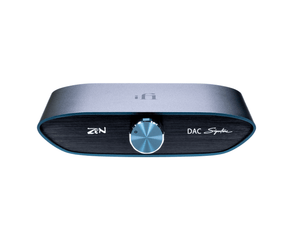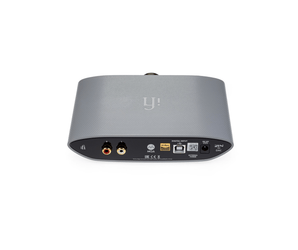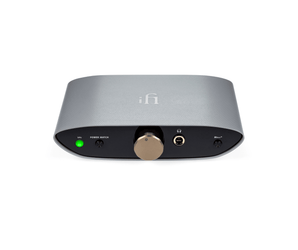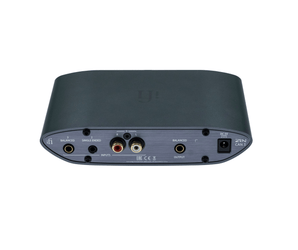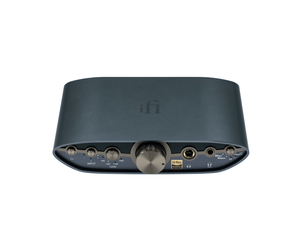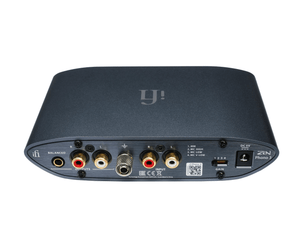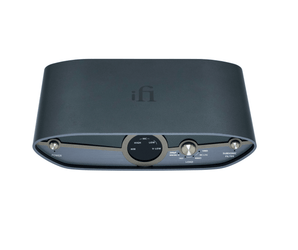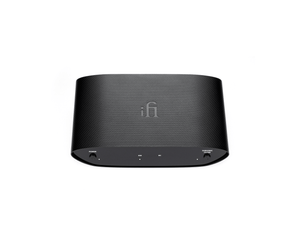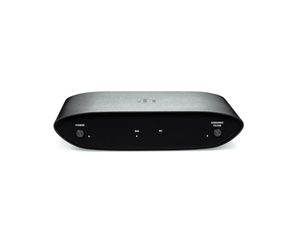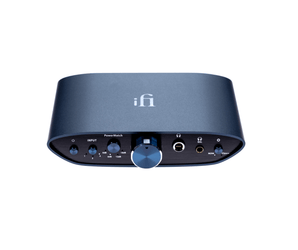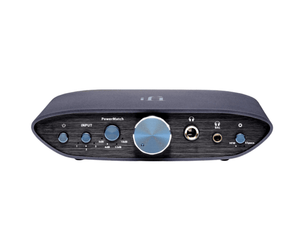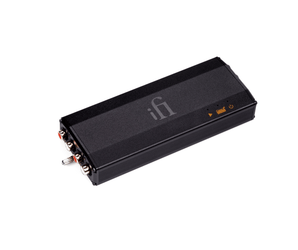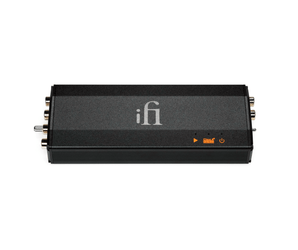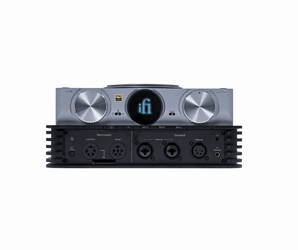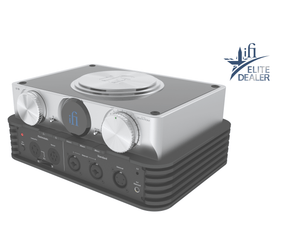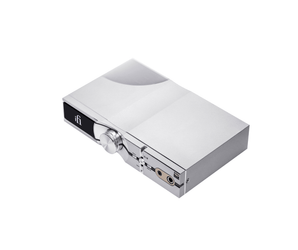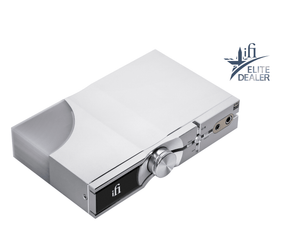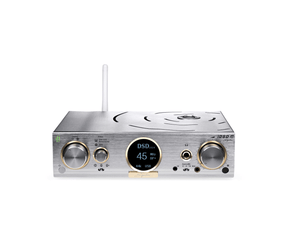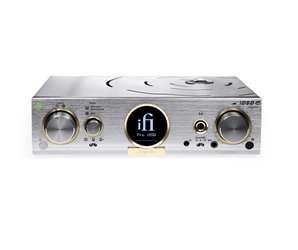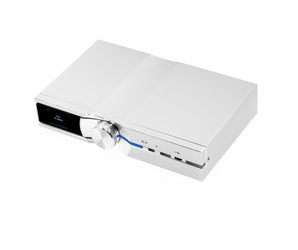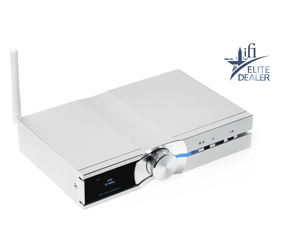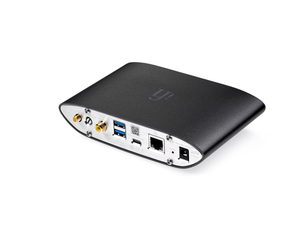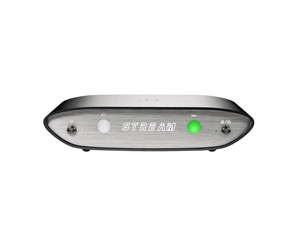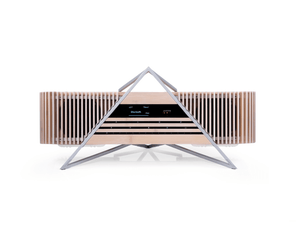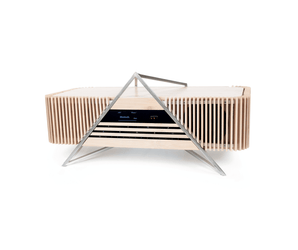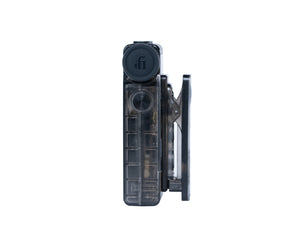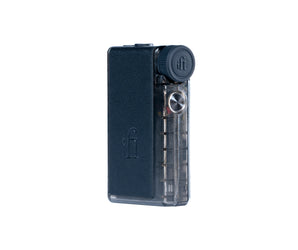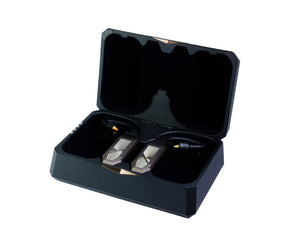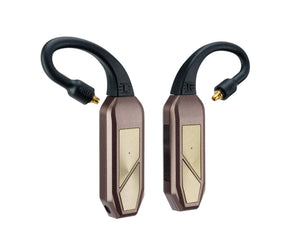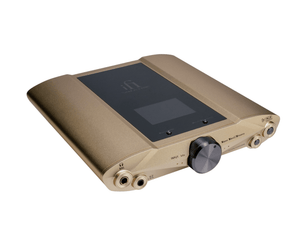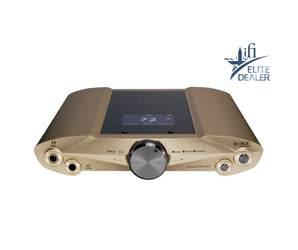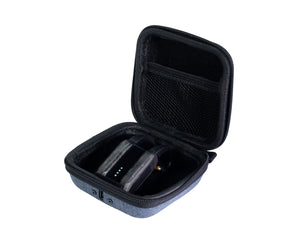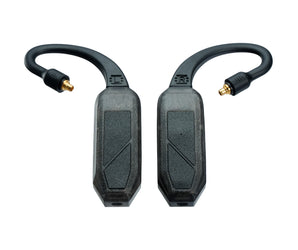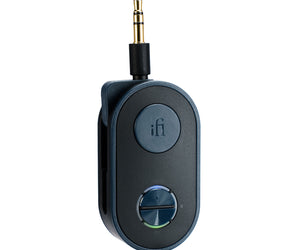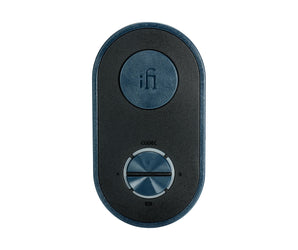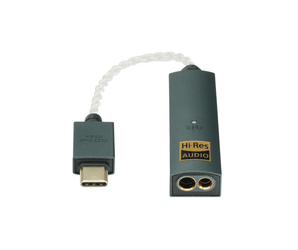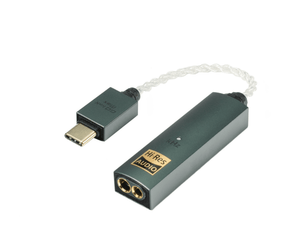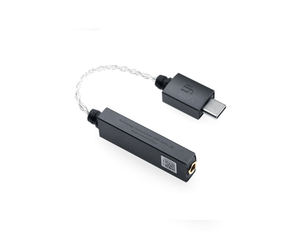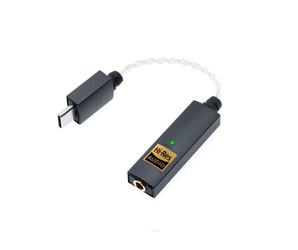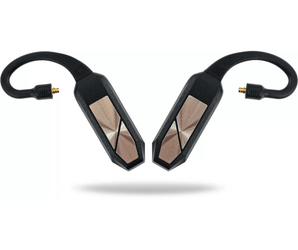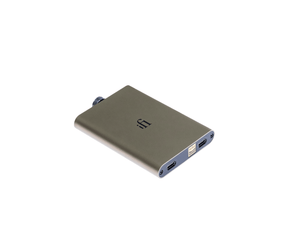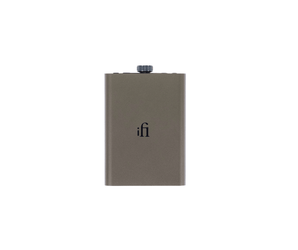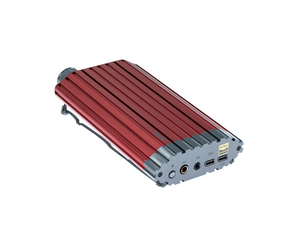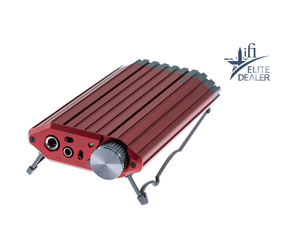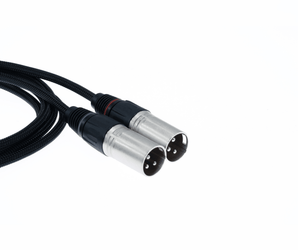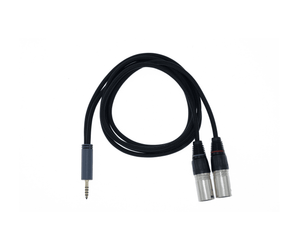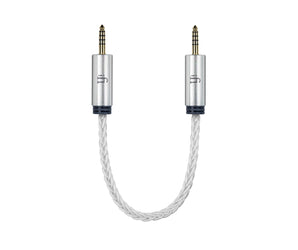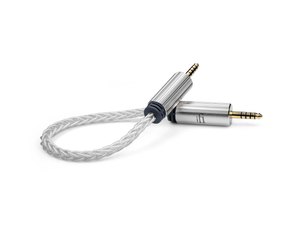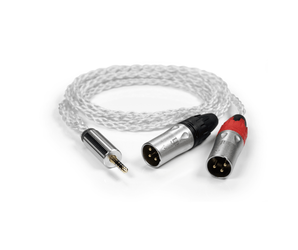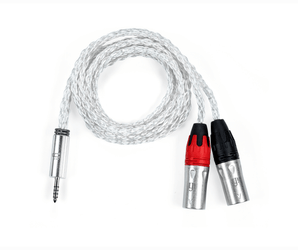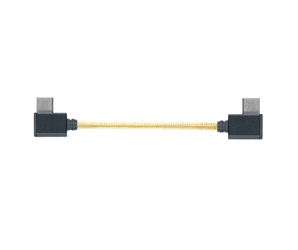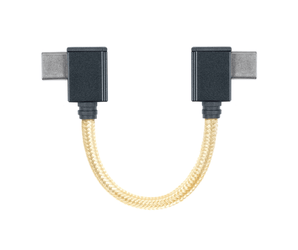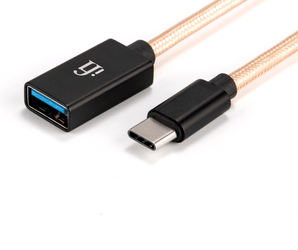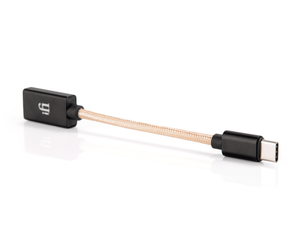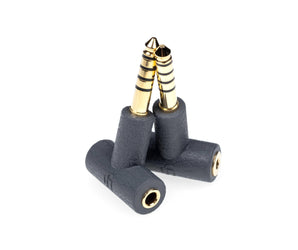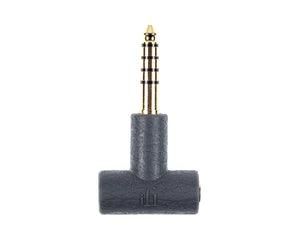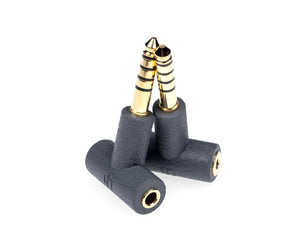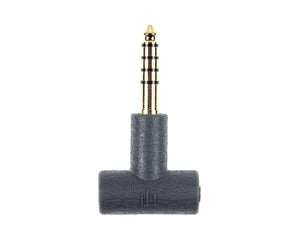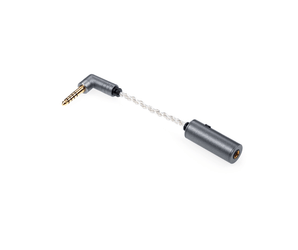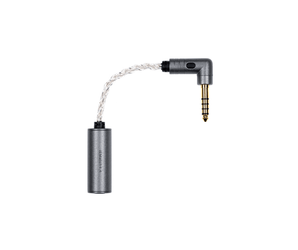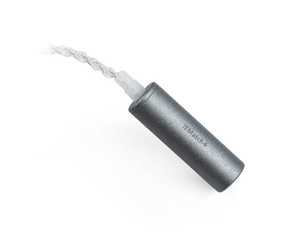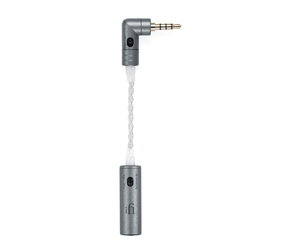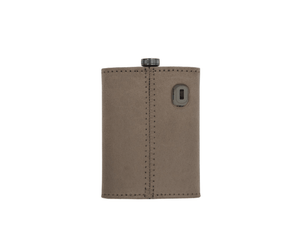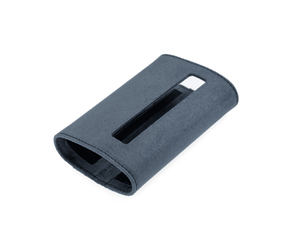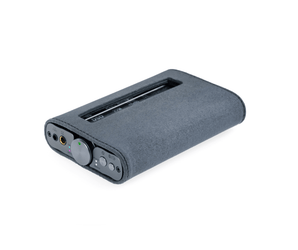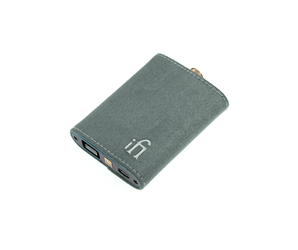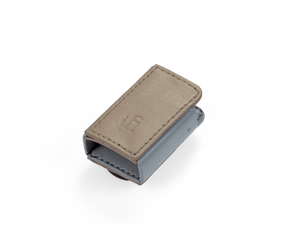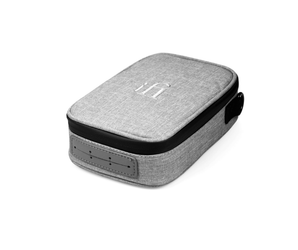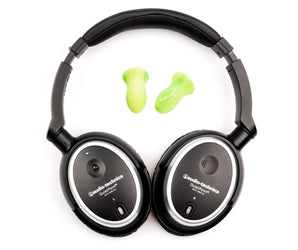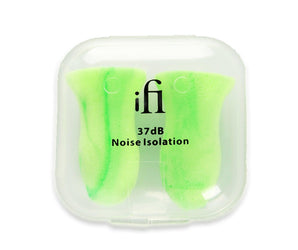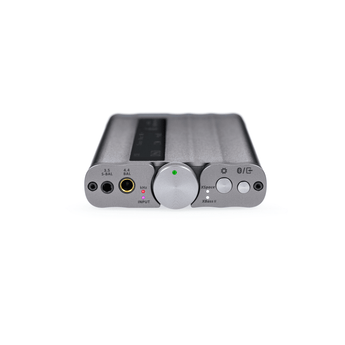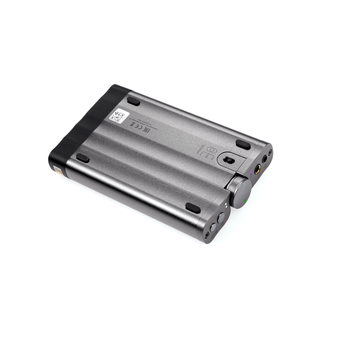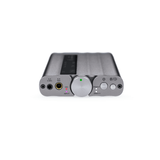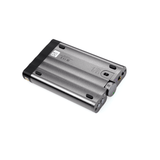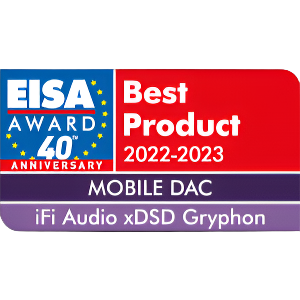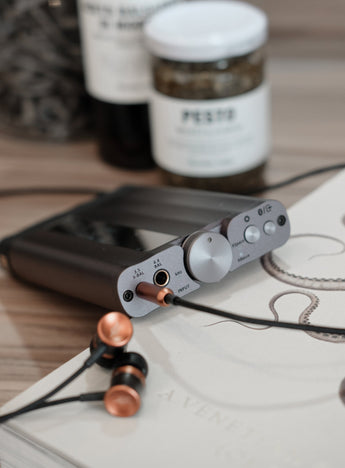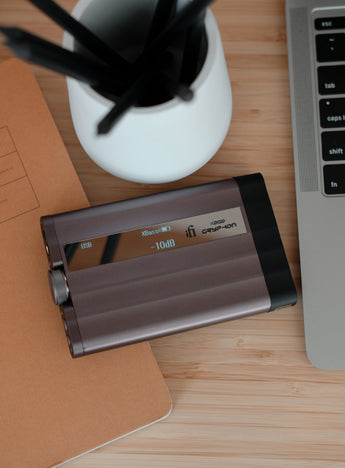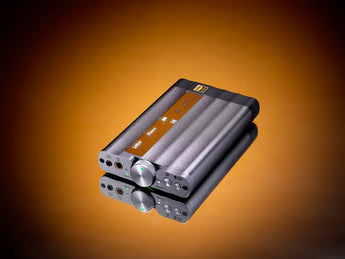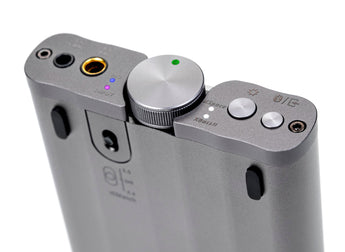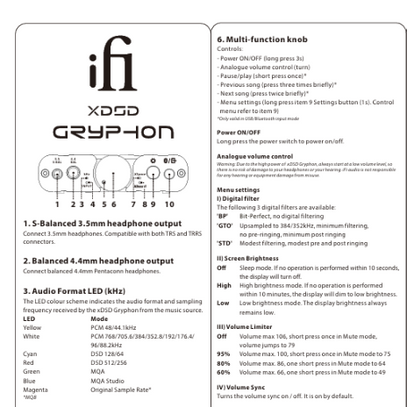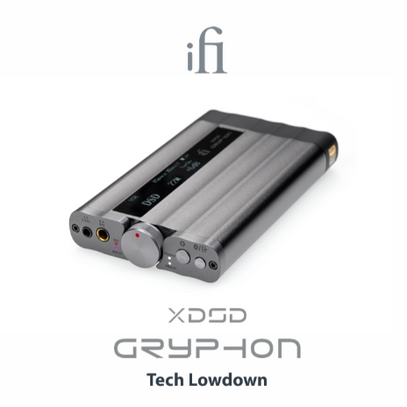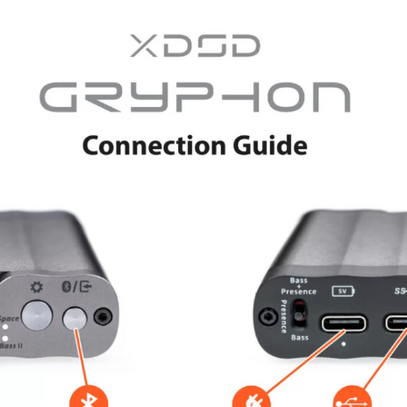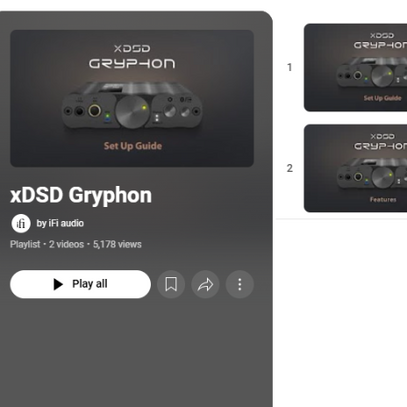iFi audio guarantees that this iFi audio product should be free from defects in materials and workmanship for a period of 1-year for parts and labour.
The warranty period begins at the date of retail sale by iFi audio or an authorised iFi audio distributor/dealer and is subject to the requirements and understandings listed in our warranty policy
Return Period
-
You have 30 days from the day your item arrives to request a return.
Return Conditions
To be eligible for a return, ensure your item is:
-
In the same condition as when received
-
Unworn or unused
-
With original tags and packaging
-
Accompanied by a receipt or proof of purchase
We offer free shipping and typically ship orders within 1-2 working days
We will update your tracking and you can track your order manually or use the Shop app to track your order.
iFi audio has shipping locations within the UK, USA, and EU, allowing us to deliver quickly and efficiently and avoiding long shipping times.
This is the official iFi audio store so you are buying direct from the manufacturer.

Key Features
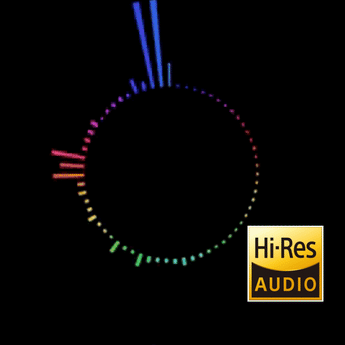
Hi-res audio support is state-of-the-art with True Native® playback. It handles PCM data to 32-bit/768kHz, DSD up to DSD512 and single and double speed DXD. Thanks to the Burr-Brown DAC chip’s four-channel True Native design, PCM and DSD take separate pathways – this enables DSD, as well as PCM, to remain ‘bit-perfect’ in its native form right through to analogue conversion.
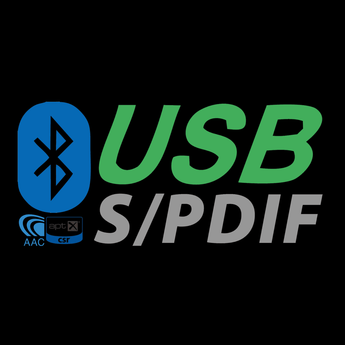
The xDSD Gryphon offers versatile connectivity options to cater to every audiophile's needs. With Bluetooth for wireless convenience, USB for high-resolution digital audio, S/PDIF for optical and coaxial sources, and analogue inputs for traditional wired connections, the Gryphon ensures seamless compatibility with a wide range of devices. This flexibility makes it a perfect companion for smartphones, laptops, gaming consoles, CD players, and more, delivering premium sound quality no matter how you connect.

The XBass II® analogue bass correction system corrects for the missing headphone/speaker bass response.
XSpace is the iFi analogue signal improvement circuitry to get that ‘music’ back outside of your head for much better headphone enjoyment.

The xDSD Gryphon is an extraordinarily powerful portable amplifier, capable of delivering up to 1,000mW from its balanced outputs
Fantastic Beasts. Here’s where you find them.
Portable DAC/amps often compromise on either the digital or analogue section—but not the xDSD Gryphon. Like its mythical namesake, it combines two beasts in one: an Ultra-Res digital stage powered by Burr-Brown MultiBit and a PureWave analogue section delivering 1,000mW. Designed to handle serious headphones with ease.
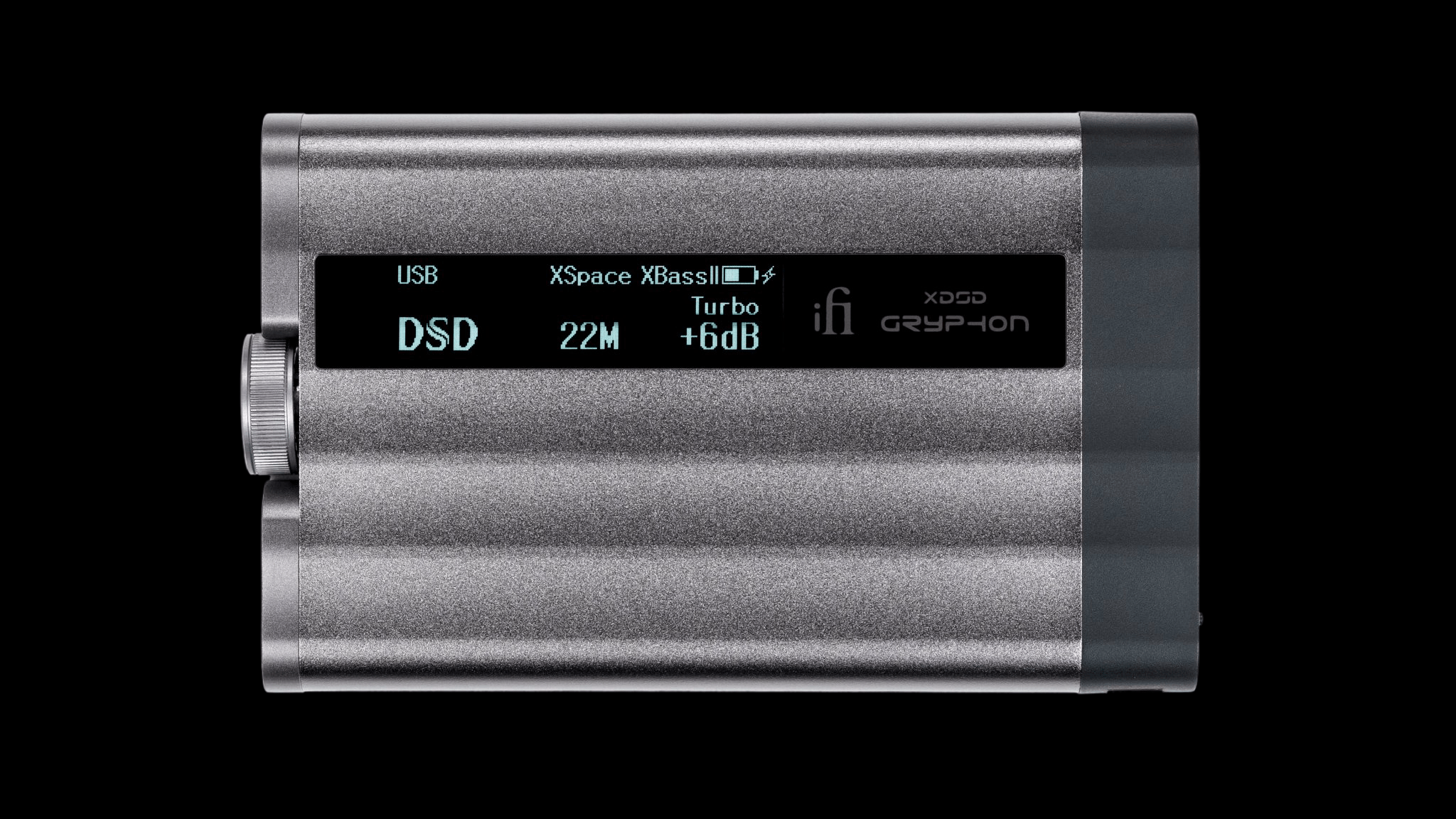
Well Connected
It has separate Bluetooth + DAC + amp stages: each optimised for maximum performance, Digital sources via USB, S/PDIF or Bluetooth Analogue sources via 4.4mm or 3.5mm inputs
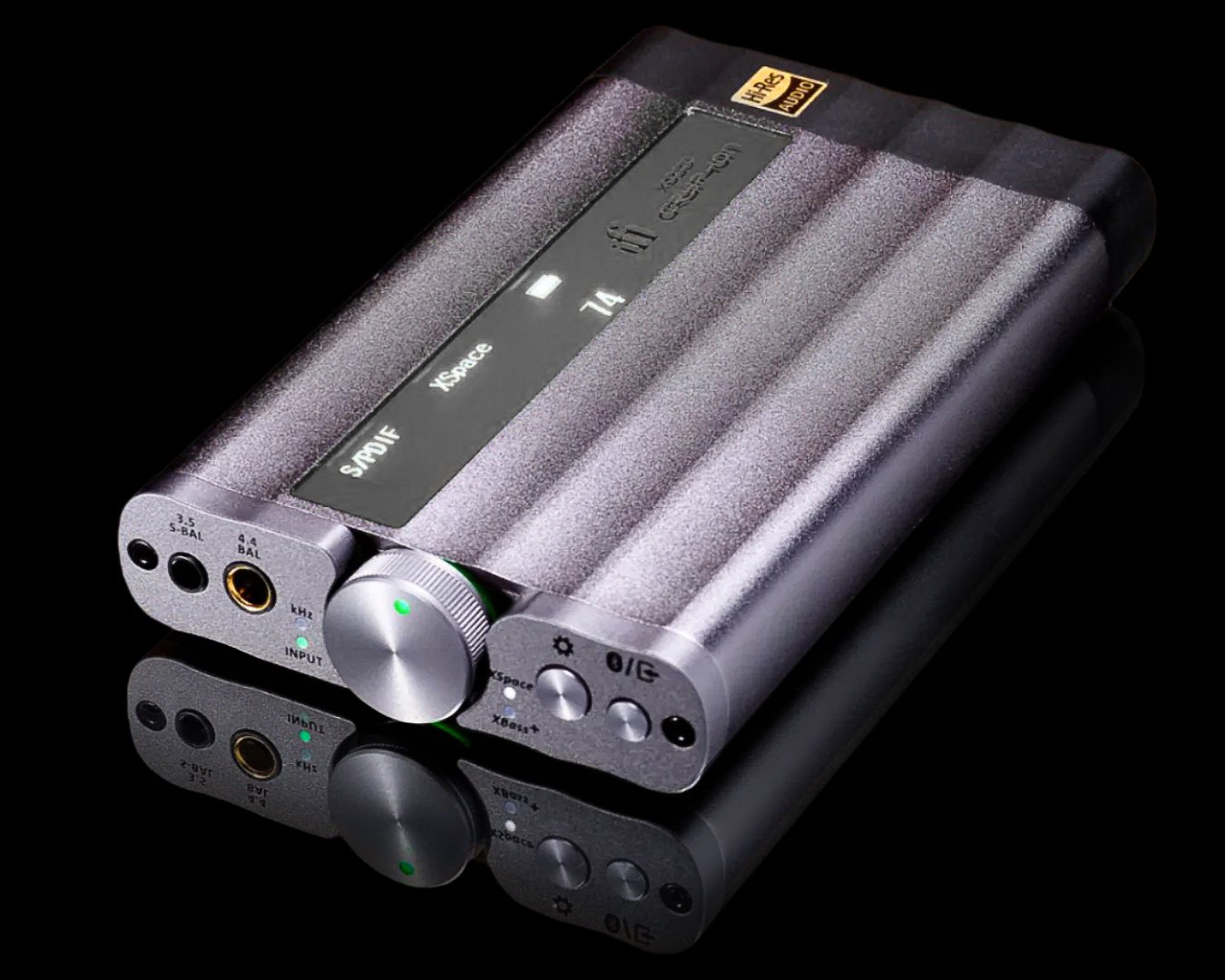
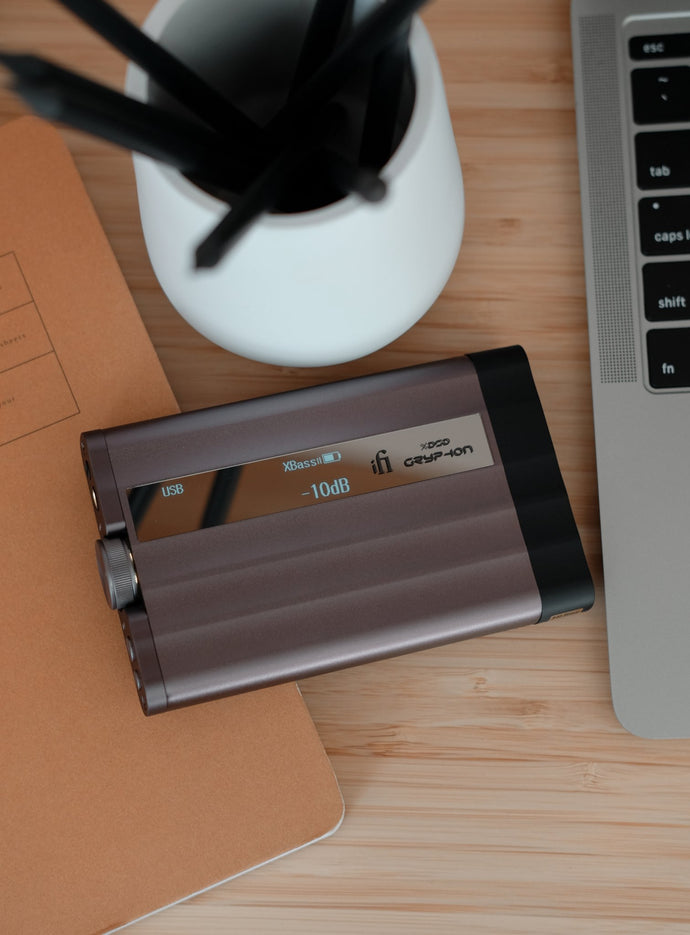
Brilliant Bluetooth. Hi-Res Wireless.
The xDSD Gryphon sets the standard for wireless connectivity with the latest QCC 5100 series Bluetooth v5.1, supporting cutting-edge formats like aptX Adaptive, aptX HD, LDAC™, HWA/LHDC, regular aptX, aptX Low Latency, AAC, and even SBC.
Built on iFi's advanced digital platform, it combines QC5100 for reception, a Global Master Clock for jitter control, and Burr-Brown for DAC conversion.
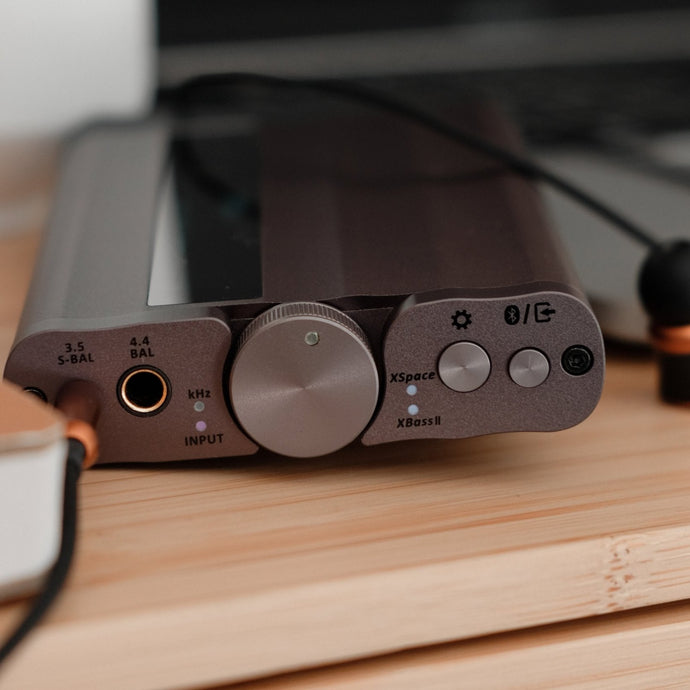
Balance of Power
The xDSD Gryphon’s PureWave amplification delivers 1,000mW at 32 Ohms with a powerful max output of 6.7V, effortlessly driving high-impedance headphones.
- 4.4mm Balanced: Perfect for balanced playback.
- 3.5mm S-Balanced: Optimized for single-ended headphones.
- iEMatch: Eliminates hiss for high-sensitivity IEMs.
Plenty of power and versatility for every type of headphone.
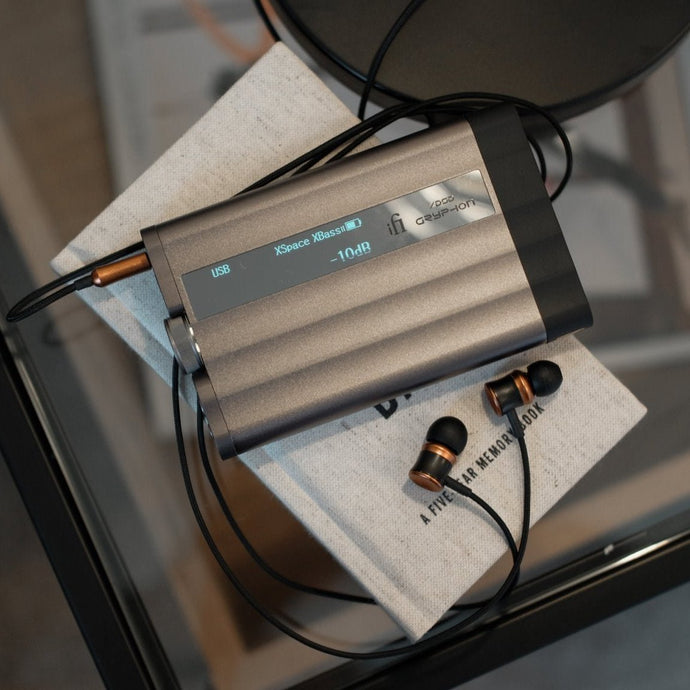
OLED. Seen but not heard.
The OLED display and iFi’sCyberSync operating system combined, usher in a whole new world of user enjoyment – all information from format to battery life is there. Just as importantly, SilentLine technology means the display does not add noise into the system. It can even be set to off if preferred.
Tailored to your ears
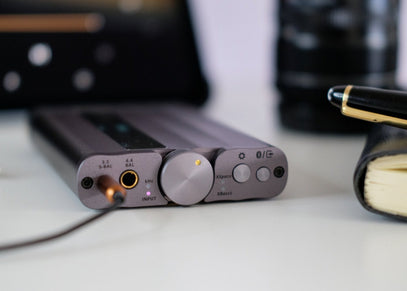
iEMatch: Eliminates hiss from high-sensitivity headphones while preserving dynamic range.
Custom Digital Filters: Choose from Bit-Perfect, Standard, or GTO (Gibbs Transient Optimised) for precise sound tuning via the on-screen menu.
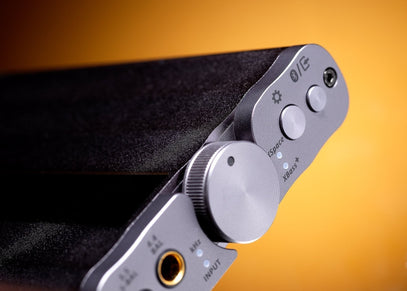
XSpace: Restores the expansive soundstage of your recordings.
XBass II: Brings back deep bass and upper midrange presence for open-backed headphones or bass-heavy tracks, with selectable ‘Bass’ and ‘Presence’ options.
Specifications
| BATTERY | USB-C charging. BC1.2 compliant up to 1900mA charging current |
| DAC | Burr-Brown |
| DIMENSIONS | 123x75x19 mm 4.8"x3.0"x0.7" |
| FORMATS SUPPORTED | DSD:
DSD512/256/128/64, Octa/Quad/Double/Single-Speed
PCM:
768/705.6/384/352.8/192/176.4/ 96/88.2/48/44.1kHz
DXD:
768/705.6/384/352.8kHz, Double/Single-Speed DXD
MQA (Decoder):
384/352.8kHz
Bluetooth:
Up to 96kHz
|
| INPUT | Wireless: Bluetooth 5.1 (aptX, aptX HD, aptX Adaptive, aptX LL, LDAC, HWA, AAC and SBC Codec) Wired (Digital): USB-C S/PDIF co-axial Wired (Analogue): Balanced: 4.4mm SE Input: 3.5mm |
| NET WEIGHT | 215 grams 0.5 Ibs |
| OUTPUT | Line Section:
Balanced: 6.7V max. (variable)
S-Bal (SE): 3.5V max. (variable) Headphone Section:
Balanced: 4.4mm Pentaconn S-Bal (SE): 3.5mm SE |
What's in the Box
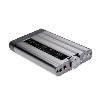
1x xDSD Gryphon
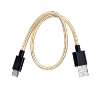
1x USB A- USB C Cable
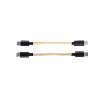
1x USB C to USB C cable & USB C to Lightening cable

1x User Manual

1x Warranty Card
Frequently Asked Questions
These are the most frequently asked questions about this product. For more product information please contact us through Contact
Can I charge it and use it at the same time?
Yes, you can
Can I power the xDSD Gryphon by USB instead of using the internal battery?
Yes you can. Plug the xDSD gryphon into a PC via USB and use the Dual Port setting. This will charge the battery to 3.88v and it will stabilize once charged, so the device will stay powered on without using the battery
Does it support S/PDIF coax and optical?
Yes. The Gryphon supports coax via 3.5mm adapter, and Toslink optical via mini-Toslink adapter on the same physical socket.
How to reset?
With USB power unplugged, hold down the XSpace/XBass button while turning on the unit will factory reset the device.
Should I switch off the OLED for best sound quality?
There’s not a need to do so because the ‘SilentLine’ tech means the OLED and its power supply are de-coupled from the main PCB. Therefore there is next to nil noise contamination.
What is DXD and why does my device not show PCM.
DXD is Digital eXtreme Definition and was created for editing DSD music.
Since the 1bit operation of DSD is not suitable for music editing, most of them have to use PCM (Pulse-code modulation), so DXD is a PCM format for music recording and editing DSD.
The specification is 24bit/352.8kHz PCM signal, in which 24bit has 8bit more data than the 16bit sampled by CD, and the sampling rate of 352.8kHz is 8 times that of CD 44.1kHz, and the data transfer rate is 8.4672 Mb/s, which is 3 times that of DSD64 commonly used in SACD, and can provide better analysis than CD and SACD.
This provides better analysis and dynamics than CD and SACD, representing one of the highest standards of sound quality for studio production.
What is XBass II with Bass & Presence
XBass II denotes you have the option to perfectly fine-tune the bass frequency response. Bass – is low bass and Presence is mid-bass. Please adjust as you like to get the ideal bass response for you.

